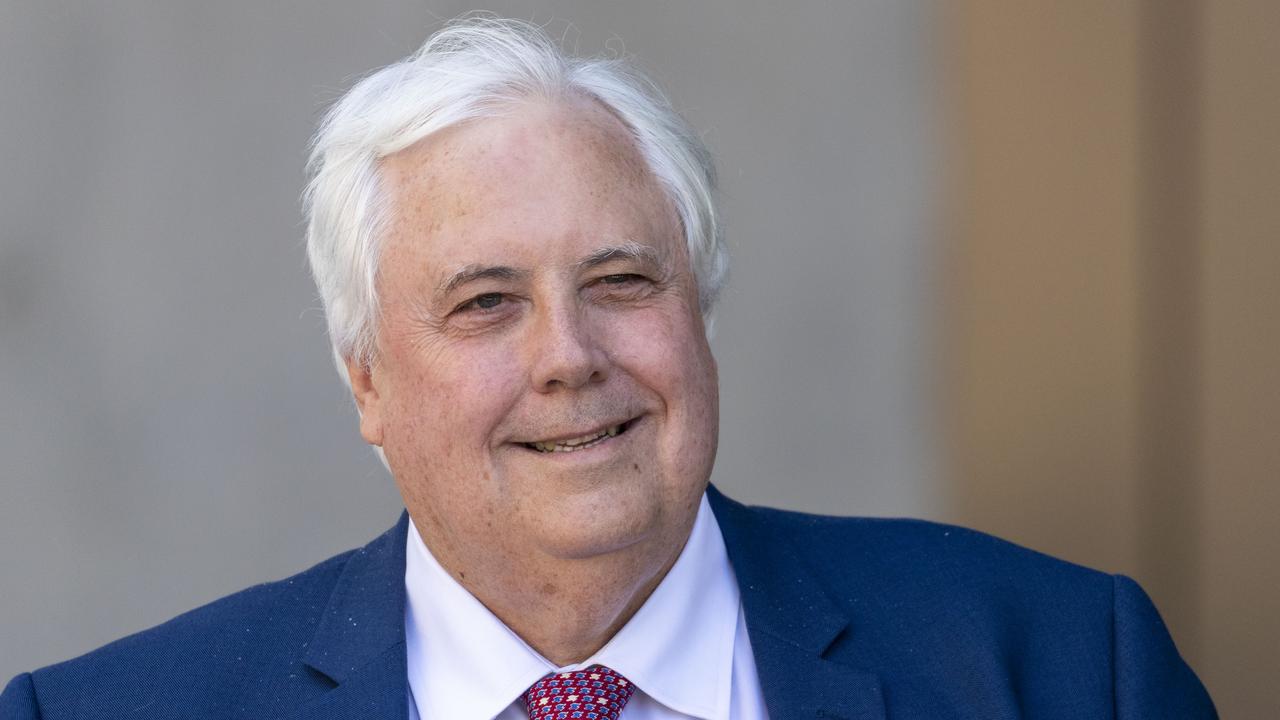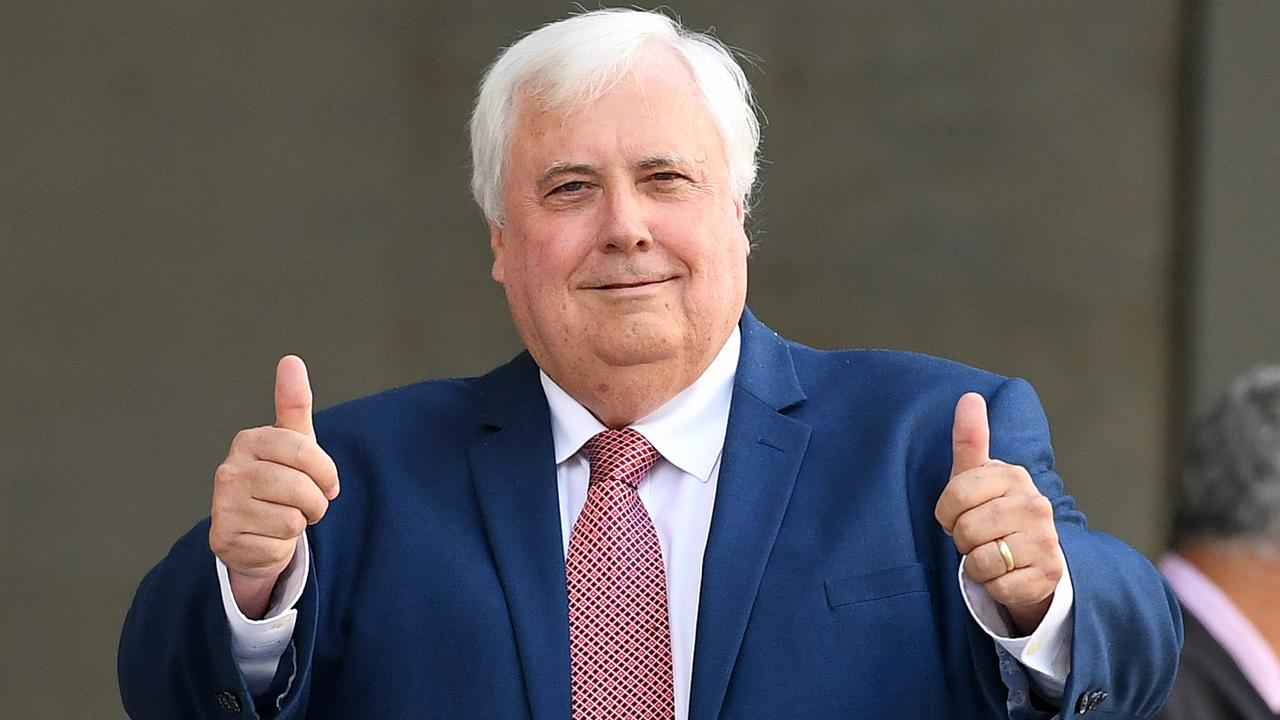Clive Palmer calls on Constitution in fight against liquidators
Clive Palmer wants one of Australia’s most powerful weapons against corporate criminals to be declared unconstitional.
Clive Palmer will ask the nation’s highest court today to declare unconstitutional one of Australia’s most powerful weapons against corporate criminals: public examinations.
If the High Court rules in Mr Palmer’s favour, not only will it kill liquidators’ Federal Court inquisition of Mr Palmer over the $300 million collapse of his Queensland Nickel company, it will have massive ramifications for the country’s corporations law.
Mr Palmer arrived in Canberra yesterday and declared he was standing up for the “rights of all Australians”, ahead of today’s hearing of the matter by the full bench of the High Court.
The former federal MP, whose Queensland Nickel sacked 800 Townsville workers before falling into liquidation in April, issued a press release, insisting he was challenging federal laws that required “Australians who have not been charged with an offence to appear before a court and to be forced to answer questions”.
“I am defending and protecting the rights of all Australians who should not be treated contrary to the rules of natural justice by a government system that does not care about the rights of individual Australians,” Mr Palmer said.
“The fact that the High Court is hearing me tomorrow is a healthy sign for justice in this country.’’
Mr Palmer and fellow former directors and executives of the Townsville refinery company have been subject to days of heated public examination by liquidators in the Federal Court.
Mr Palmer was due to be questioned by top silk Walter Sofronoff QC, a former solicitor-general of Queensland, on behalf of Queensland Nickel’s general-purpose liquidator at the end of last month.
However, that legal showdown has been postponed until after the High Court hearing.
Under the Corporations Act, liquidators of collapsed companies are entitled to publicly examine company officers and can apply to question other parties, such as creditors, auditors and lawyers. The examinations are a fact-finding exercise used by liquidators to inform their pursuit of money owed to creditors, and to identify whether directors may have committed corporate offences.
Liquidators can also demand that documents be handed over.
Witnesses in public examinations can claim privilege against self-incrimination, to ensure their testimony is not used against them as evidence if they are prosecuted for offences down the track.
During his stint in the witness box, Mr Palmer regularly claimed privilege.
He has denied any wrongdoing in the collapse of Queensland Nickel.
The attorneys-general of the federal government, Queensland, Victoria and Australia have all intervened in today’s High Court matter, and are urging the court to rule against Mr Palmer.



